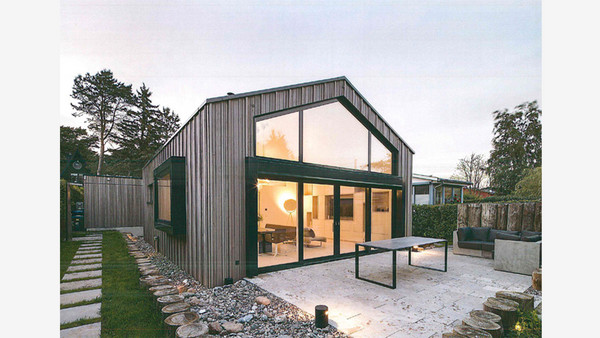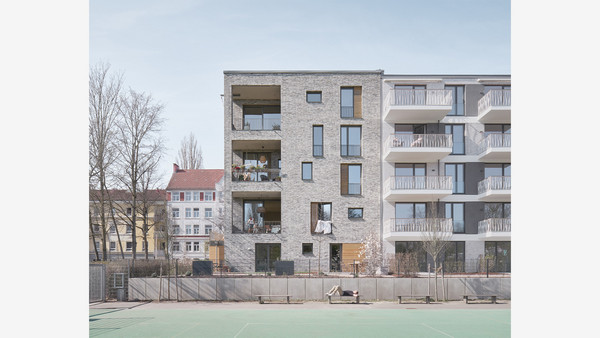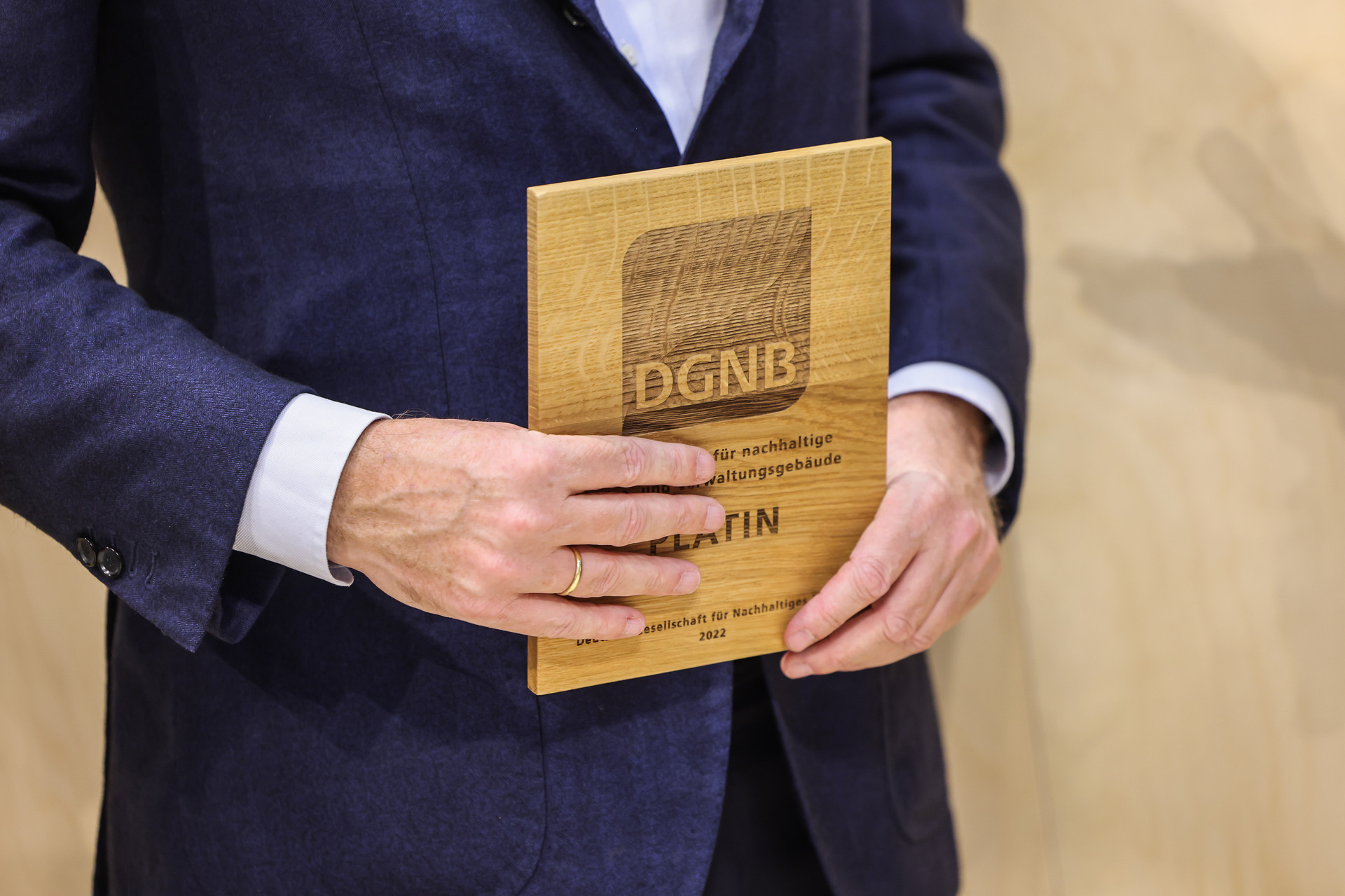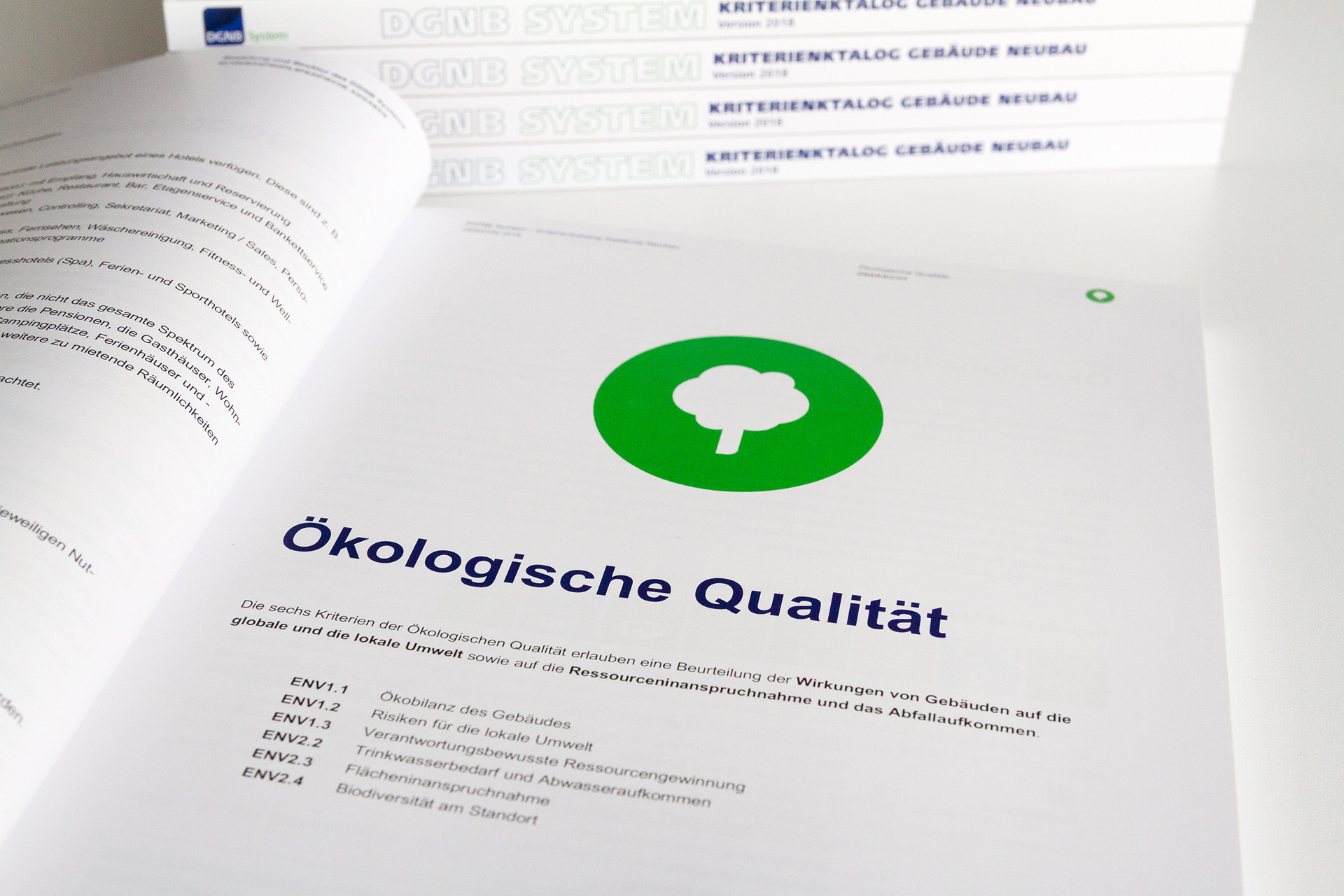Many people spend a large part of their time in buildings – especially in residential buildings. Homes in particular fulfil a fundamental role: for people in a wide variety of life situations, they provide room for recreation and regeneration and offer space for private life. When planning and constructing sustainable residential buildings, the focus is therefore clearly on the comfort and well-being of the users. At the same time, the issue of conversion, low life-cycle costs and a long service life of the building is also central for private builders, who usually only build once in a lifetime. DGNB Certification of small residential buildings, such as detached and semi-detached houses and apartment blocks with up to twelve units, can help as a planning and quality assurance tool. In addition to ecological and economic aspects, one focus of the assessment is on user comfort, both in acoustic, thermal and visual terms, as this has a major influence on well-being.
For small residential buildings, the current DGNB System for the Renovation or New Construction of Small Residential Buildings (up to 12 residential units), Version 2024, applies. Exceptions are projects that have already been pre-certified with a previous market version. These projects may also be registered for the certificate in the same version. For international projects, "New Construction of Buildings, Version 2020 International" applies.
Healthy living environment
High living comfort
Increased well-being
Low CO2 footprint or carbon neutrality
High building flexibility due to e.g. easier adaptations in case of changes
Lower costs for conversions
Low ancillary costs
Advantages when selling real estate
High sense of security for residents
High recyclability of the building
The certificate is primarily aimed at anyone who plans to construct or renovate small residential buildings. These can be builders, architects, project development offices for small residential buildings, energy consultants in their role as DGNB Auditors, prefabricated house manufacturers (series certifiers) or property developers, construction companies and craft businesses. The DGNB Certificate serves as independently verified proof of the holistic quality of the building for anyone wishing to purchase or rent a detached, semi-detached or small apartment building.
- Possible financial support from KfW
- Differentiation from competitors
- Holistic consideration of all relevant sustainability requirements
- Transparent and independent quality award and assurance for planning, construction or renovation and operation
- High value stability
- Improved market opportunities
- Advantages when selling real estate
- Long-term Asset Value
- Flexibility and convertibility
Small residential buildings are all buildings that are primarily used for residential purposes. This scheme applies to buildings with twelve or fewer residential units such as single-family houses (with granny flat) or two-family houses, semi-detached houses or terraced houses and small apartment blocks.
Selected DGNB certified projects

Small Residential Buildings

Small Residential Buildings
The criteria sets available
DGNB Criteria Set New Construction Buildings, Version 2023
Project registration

To register a project, clients must first hire a DGNB Auditor. This auditor can then register the project. Auditors also accompany the entire process and take over the verification and submission to the DGNB. They are active worldwide and specialise in certain schemes.
Projects can be registered in the current market version "Small Residential Buildings Renovation / New Construction, Version 2024" (up to 12 residential units), which is currently only available in German. The DGNB System "New Construction of Buildings, Version 2020 International" is not yet available for this scheme. However, DGNB Auditors with German language skills can combine and adapt the full range of current German schemes with the DGNB System "New Construction of Buildings, Version 2020 International" in order to certify other building types.
Your contact
Angelika Bandke
Senior Consultant Serial Certification
- Phone: +49-711-722322-44
- Email: A.BANDKE@DGNB.DE
Yvonne Potyka
Certification / Residential Buildings
- Phone: +49-711-722322-176
- Email: Y.POTYKA@DGNB.DE

